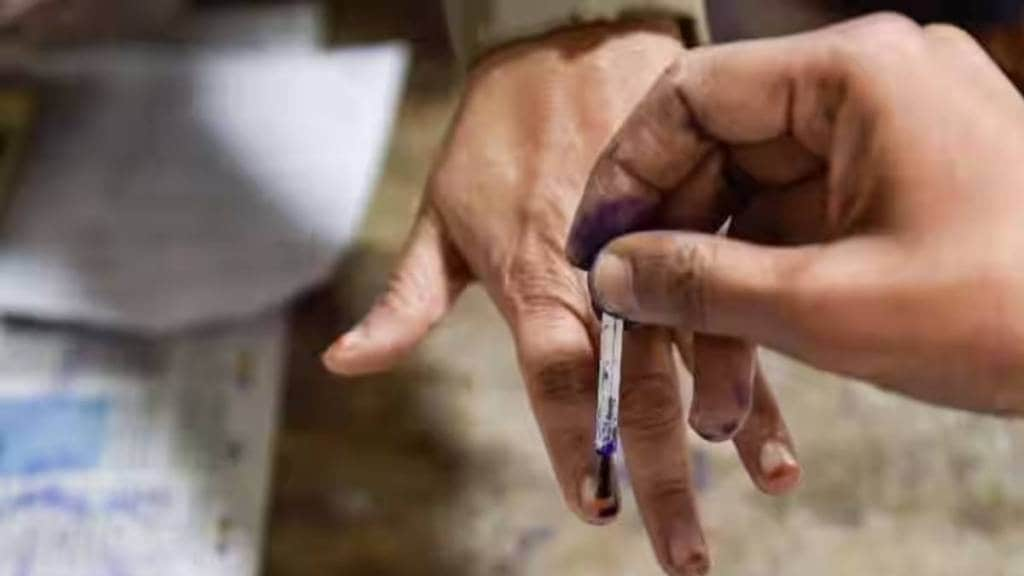By Danesh Varma
As I catch a top political party’s daily Tihar jail news rendition, I am reminded of a picture in an iconic magazine featuring Rajan Pillai of United Biscuits who bought Britannia Biscuits in the late 1980’s and rolled the enlarged collective up into RJR Nabisco in what was at the time the largest leveraged buyout in corporate history. Chronicled in the book “Barbarians At The Gate”, which shone a light on KKR and the attendant skulduggery, our election horror show draws uneasy comparisons with this infamous stop-at-nothing landmark in corporate history.
It is also etched in my memory for personal reasons. My wife and son had moved back from Bermuda to India so my son could start school, and as I said my goodbyes to my Canadian colleagues, I saw the magazine on the coffee table of a family friend. My son could not join my alma mater as the then principal, who was my junior, would not waive a three day birth date eligibility. To make matters worse, the rejection from my alma mater Principal came after the Head of the Alumni Association had borrowed money from me, which was only repaid under threat of exposure, and even then with a 50% haircut for the privilege!
Thus I feel urged to pen this as the country goes to polls with the leader of an opposition party jailed and granted bail by the top court to campaign for the polls, drawing an ominous comparison to another potential US President in waiting potentially in the same position. The US is of course the other ‘significant’ democracy with which India has had a brief relationship since independence, despite turning to Russia after a personality clash around the break-up of Pakistan. A dual citizenship and free currency deal were carved out with East and West on opposite sides of India by the British, and the subsequent arrival of independence that left Kashmir as a loose-end after a corridor led by a rich Royal in the middle of India could not be realised.
The opposition has claimed misuse of Electoral Bonds (now illegal following a retroactive action by the Supreme Court), highlighting a trumped-up corruption charge with ugly details of a businessman admitting the so-called crime under coercion. The businessman hastily changed his story as he realised it was the only route open to him to regain his independence. A more dramatic claim is that India’s benevolent dictator is aiming to replicate Putin’s landslide majority, which was probably less to do with Russia’s ill-fated Ukraine invasion and more to do with the prospect that the planet could be engulfed into World War III, particularly, after the emergence of a second front in Israel.
The timing of an acknowledged terrorist attack near Moscow and Russia’s attempt to blame it on Ukraine is almost farcical, although the US seemed remarkably up to speed with events, warning that a terrorist threat existed and issuing a travel advisory. The subsequent humanitarian and diplomatic intelligence measures are now a question of conjecture and debate, as are the possible machinations behind the event itself.
It is entirely possible that India’s new and self-proclaimed rise to the top following the near-fatal bankruptcy may be partly due to the adoption of Russia-style control, planning and execution of its policies. The Mossad-style killings and near misses in North America should also cause concern as they involve the long suffering Sikhs, once the defenders of the borders and similar to the Nepali Gurkhas, who, thanks to India and Britain have also suffered and died on both sides of the Russian conflict.
There should be a great deal of concern for the fate of the Sikhs, who can not only actively lead a coalition but who also hold sway over the hundreds of billions of investment badly needed for the functioning local and State government debt markets.
Our erstwhile leaders would also do well to heed the one and half trillion dollars of gold now in private hands, and the similar numbers involved in Swiss bank deposits, as recently and embarrassingly leaked by a bank with dual China and British heritage and also seeded by the venerable (and now slightly tainted) Tata brand. This shocker perhaps even eclipses the return of Air-India after its nationalisation and resale as a last resort or the Suzuki saga emulated by Fortis leading to a colossal missed opportunity to get investment from Buddhist Japan which bailed out the country in one of the previous reforms.
Like family, we can’t change our neighbours, but we can choose our friends, especially if they are also neighbours. Renewed talk of the BRIC and Global South after Chindia are fraught with risk and require total focus without the attendant space and war discretionary spends. In this regard the prospect of an open discussion by our Esteemed Leader, supposedly a master of social media and with his own radio show stands starkly at odds with his current schedule of the odd international press conference. His media policies do not generate confidence, and this, along with his absolute control of TV and media channels, actively prevents a much needed and balanced two-way dialogue.
(The author is the founder of Rai Sahib DD Varma & Dr Jai Lal Varma Foundation)


